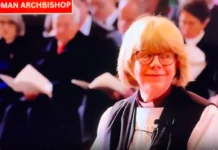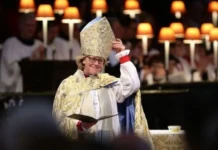It was announced on 12 Aug 2018 by the Church of England that there would be a review into the case of John Smyth. A year later in August 2019 the National Safeguarding Team commissioned Keith Makin to undertake this review into the Church’s handling of the conduct of Smyth. The review is set to be completed within nine months. The long-awaited announcement was welcome news to all those who seek clarification of the long-running saga of John Smyth, Iwerne Holidays, Titus Trust, Winchester College and the Scripture Union. This NST announcement was, however, almost immediately undermined by the announcement that one party, the Titus Trust, would not cooperate with the review for legal considerations. Then the Scripture Union made a similar non-cooperation statement without giving out its reasons. Winchester College announced that it would, ‘subject to the matter of any live litigation’, cooperate with the review.
The original August 14th Press Release from the Church emphasises the major role expected of the three organisations mentioned above to the Smyth review process. With the blanking of the review by two of the three participants, one might have hoped for a further Press Release to indicate how the review was proposing to overcome these obstacles being put in its path. Nothing has been announced and so we are led to conclude that the review will soldier on without the backing of some of the main institutional players in the Smyth affair. One way to go forward might be to approach the individual members of the Trustees of the Titus Trust. Some of them are licensed Anglican clergy and so they are under episcopal authority. Even if the corporate body refuses to cooperate, individual trustees can surely be required to respond to legitimate questions from an official C/E review. This of course assumes that Keith Makin has the full backing of bishops and other authorities in the church for his work. The names that come up from an internet search are Simon Austen, the current chair and Richard Dryer, Adrian May and Phil Parker. These are all clergy in the Church of England and so should be amenable to an episcopal requirement to provide what information they have.
A second suggestion would be to approach the known victims of John Smyth. Some I know are willing to be approached if this is done with proper safeguards. Back in May in a Church Times report, Andrew Graystone identified 26 individual Smyth victims in the UK, two of whom have reportedly died. Some of these survivors are active online so it is possible to gauge from their tweets an impression of what this particular group think so far about progress in the review. The answer to a question about the progress of the review up till now is that there has been, as far as they are concerned, complete and utter silence from the reviewer.
This brings us on to ask about the qualifications of the reviewer, Keith Makin. He was chosen by the NST for his 30 years of management in the social care field. He has already led on a number of serious case reviews. He is clearly a professional in this line of expertise but there is no indication of any background in the church. This would have given some insight into the tortuous political and theological aspects of the case. Anyone who has followed the Smyth case at any depth will know that it has become, over the passage of thirty years or more, enmeshed in the politics of a large segment of powerful Anglican evangelicals. Those of us who are watching this case realise that even with a great deal of background reading it is sometimes hard to disentangle all the subtle nuances of theology in this case. Also, the response of the Church to Smyth and its institutional failures in the years that followed were in part because of theological politics. It would be unfair to expect anyone from Makin’s background to be able to unravel all this complexity.
An Internet search on Keith Makin shows that he is no longer active in any of the five directorships that he used to hold. His main role now is to head up his own consultancy firm in Northumberland. His commission to conduct the review began on 19th August. By now we might have hoped for some visible signs of movement, especially if the review is to be completed in nine months. The original Press Release about his appointment did not spell out in any detail how the review is to be conducted, but we might have hoped that Keith would by now have set up a dedicated web-site for the purpose of reaching out to survivors and anyone else who has information on Smyth. If the review is to be strong in ways that use Keith’s areas of expertise, then, surely, he will be anxious to learn as much as possible from those who knew Smyth and suffered at his hands. I strongly sense a feeling of frustration coming from Smyth survivors that I am in touch with that they have not heard anything about the gathering of factual evidence. Although the review that eventually appears may not have any theological insight, this fact can be overlooked if it is professional, business-like and concerned to present all the facts of the case.
The silence that seems to pervade the Makin review process so far is also apparent in the information on Jonathan Fletcher. The Daily Telegraph report which appeared at the end of June opened a flurry of interest, particularly as it linked up to the Smyth scandal. Smyth and Fletcher knew each other and were part of the same networks of well-connected evangelicals in Church Society/Reform/Iwerne circles. It can also be suggested that the people who knew about the nefarious activities of both men were from the same circles. In short, there seems to have been a cover-up by well-connected and apparently honourable Christian individuals over a long period of time. In the period that has passed since June, there have been no new disclosures against Fletcher. The opposite seems to have happened. Old loyalties to conservative Christian networks, Christian Unions and Iwerne camps seem to have held firm that no new disclosures have been revealed. Loyalty to the evangelical tribe has taken precedence over a higher loyalty to the values of truth and justice. Silence on the topic has been almost total.
Having written two pieces on the Jonathan Fletcher on my blog, I have been interested to see that my essays still attract a reasonable amount of attention. Most of my other blog essays are forgotten in a couple of weeks, but the two Fletcher articles have ridden high on a Google search and still attract around twenty hits every day. One of the reasons for this is that there seems to have been an attempt to remove Jonathan Fletcher’s name from all mention elsewhere on the Net. Sermons given by him have mysteriously disappeared. Mention of his presence and participation in the Commissioning of Andy Lines at Wimbledon was erased and the author who had written the piece, Chris Sugden, had not been consulted. The effort of this cleansing of the Net points to a considerable effort and measure of support in the face of evidence of immoral behaviour by Fletcher. All this suggests that Jonathan Fletcher still carries a great deal of support. The tribal attachments in this branch of the Church are alive and well but these loyalties also have the detrimental effect of corrupting those who hold to them.
Over the next months Keith Makin has the unenviable task of making some sense of the failures of the Church with regard to John Smyth and his felonies. We trust that his way of working will soon become clear. His review is important to the Smyth survivors, the Church as a whole and all who want to see good practice prevail in the institution. One area that he is unlikely to penetrate is the culture of secrecy, dishonesty and corruption that made Smyth’s (and Fletcher’s) behaviour happen in the first place. It is that poison that is the cause of so much harm to the Church of England both now and in the future.




Thanks Stephen for keeping this on the radar. It seems the general hope is it will go away. As you say, Fletcher is still around and seems to hold considerable sway. I would hope for better from those involved.
I think this sadly gets to the heart of the delusion involved https://www.emschumacher.com/the-gospel-centered-abuser/